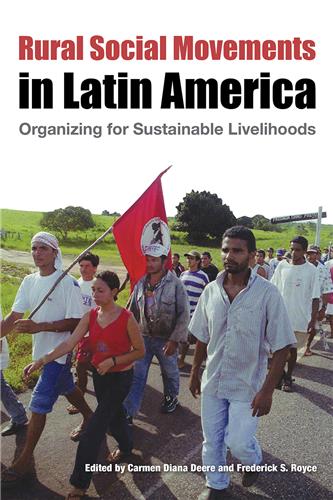This book analyzes how digital-native audiovisual satire has become increasingly influential in national public debates within Latin America. Paul Alonso examines the role of online video creators in critiquing politics and society and amplifying public discourse, filling gaps left by traditional media and journalism.
Browse by Subject: Political Science
Please note that while you may order forthcoming books at any time, they will not be available for shipment until shortly before publication date
In this volume, Mauro Caraccioli examines the natural history writings of early Spanish missionaries, using these texts to argue that colonial Latin America was fundamental in the development of modern political thought.
Updated in this revised edition to include major recent events, new data, and new research, The Politics of Language in Puerto Rico analyzes the controversial language policies passed by the Puerto Rican government in the 1990s, exploring the connections between language and cultural identity and politics on the Caribbean island.
This book reveals how migrants shape the politics of their countries of origin, drawing on research from Mexico, Colombia, and Ecuador and their diasporas, the three largest in Latin America. Luis Jiménez discusses the political changes that result when migrants return to their native countries in person and also when they send back new ideas and funds—social and economic “remittances”—through transnational networks.
The contributors to Rural Social Movements in Latin America include academic researchers as well as social movement leaders who are seeking to effect change in their countries and communities. As a group they are at the forefront of some of the most critical environmental, social, and political issues of the day.
In this volume, Elizabeth Manley explains how women activists from across the political spectrum engaged with the state by working within both authoritarian regimes and inter-American networks, founding modern Dominican feminism, and contributing to the rise of twentieth-century women’s liberation movements in the Global South.
Most studies view the Caribbean as disparate countries prone to revolution and ripe for rebellion. In a refreshing departure from the norm, Anthony Maingot, using historical and contemporary examples, explains that the region is actually populated by resilient, adaptable societies with a political culture comprising both modern and conservative elements.
Offering an interdisciplinary approach to the critical issues facing Brazil, the contributors to this volume analyze the democratization of the country's media, its nuclear capabilities, changing crime rates, the spread of Pentecostalism and indigenous religions, the development of popular culture, the growth of Brazilian agribusiness, and the implementation of sustainable economic development, especially in the Amazon.
An insider’s view of the Castro brothers’ rule











